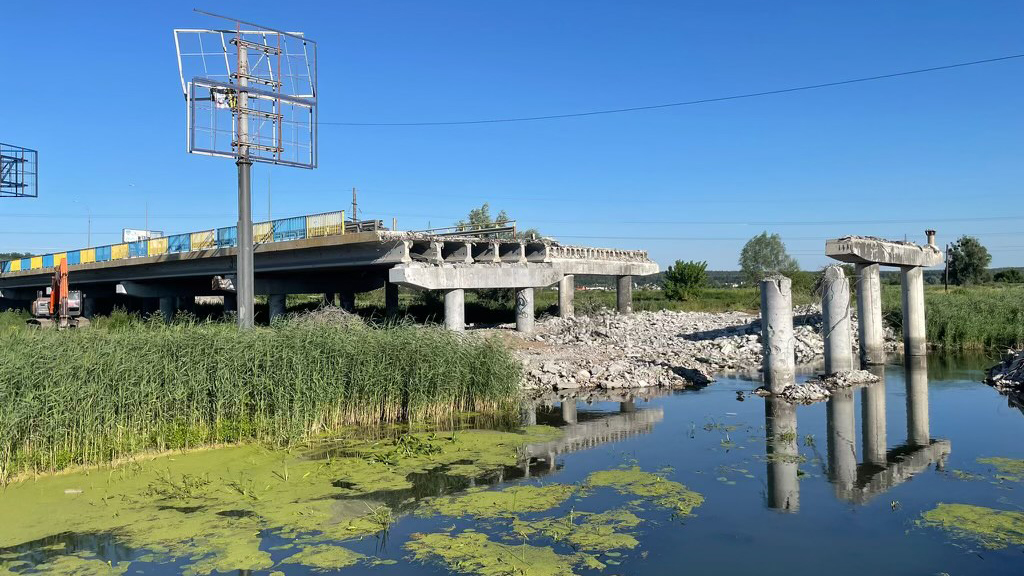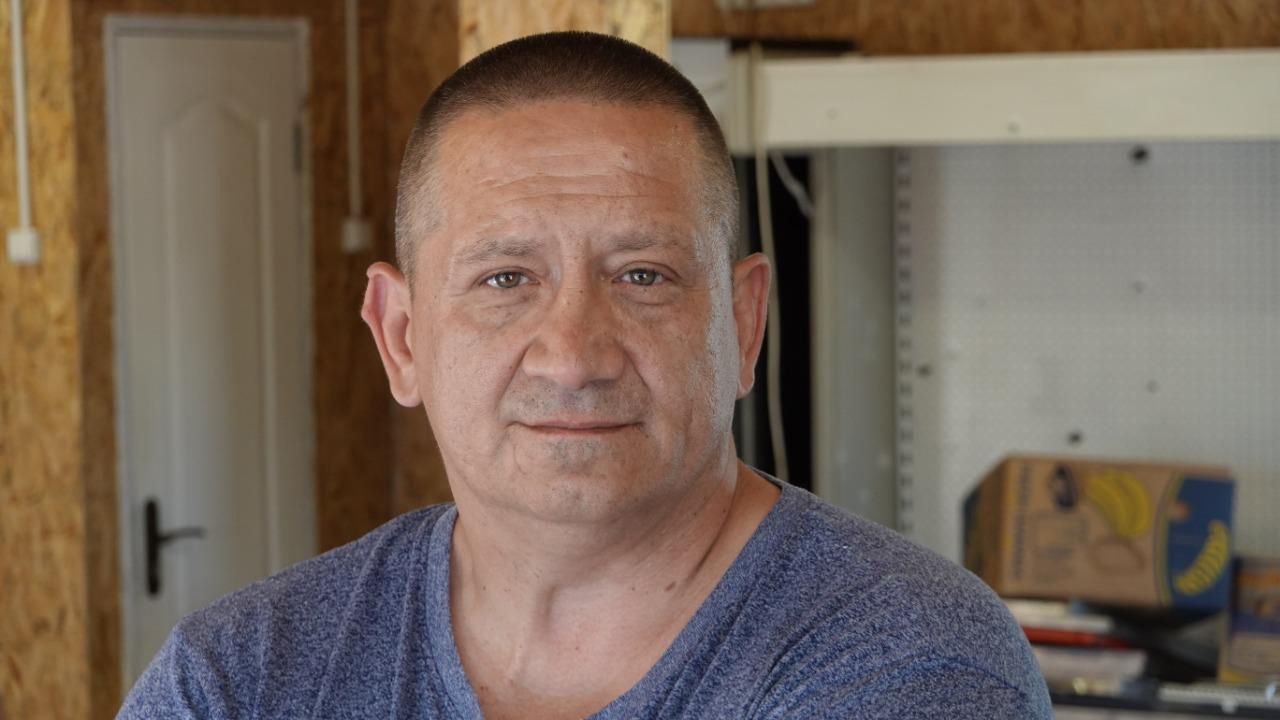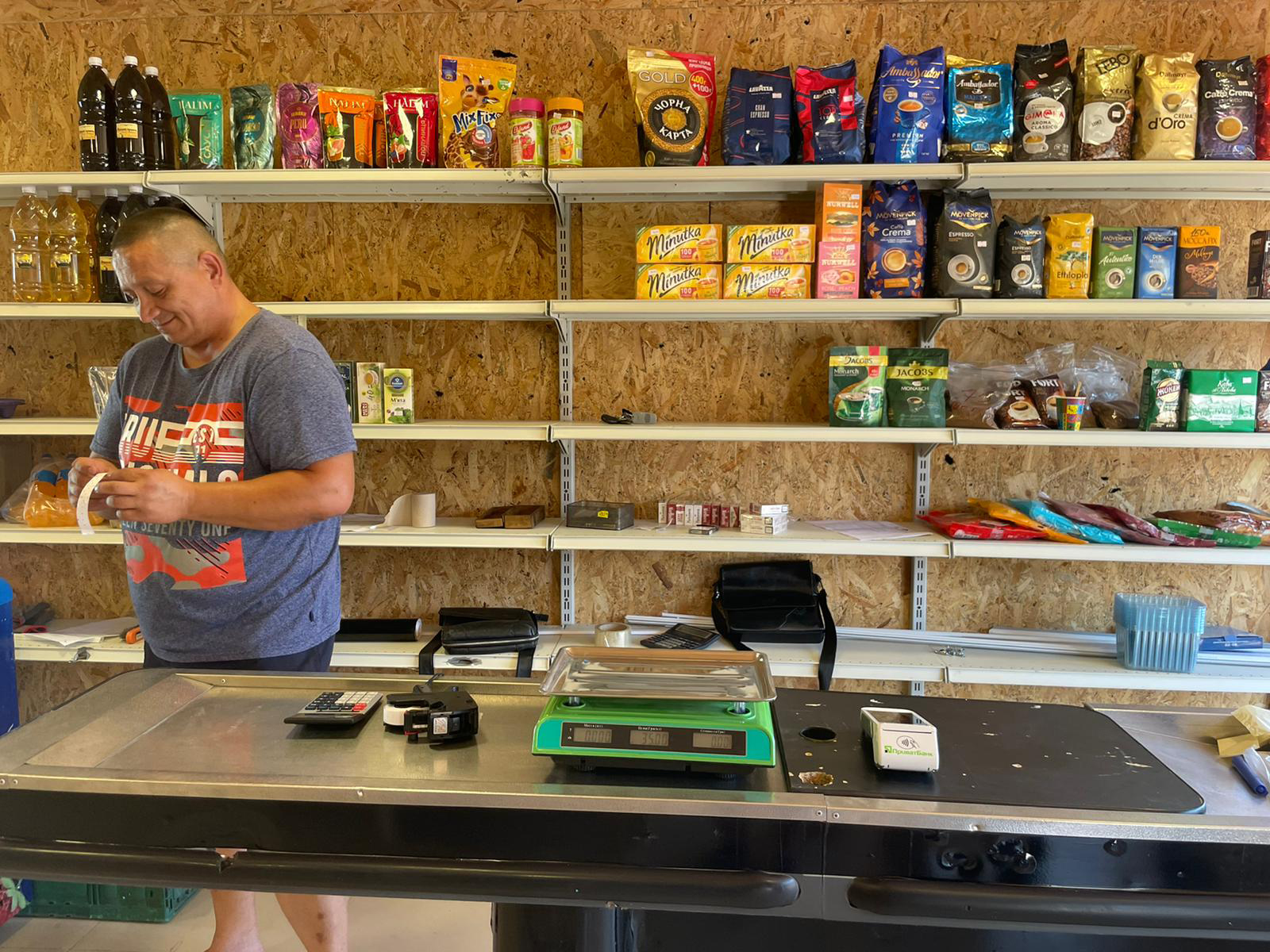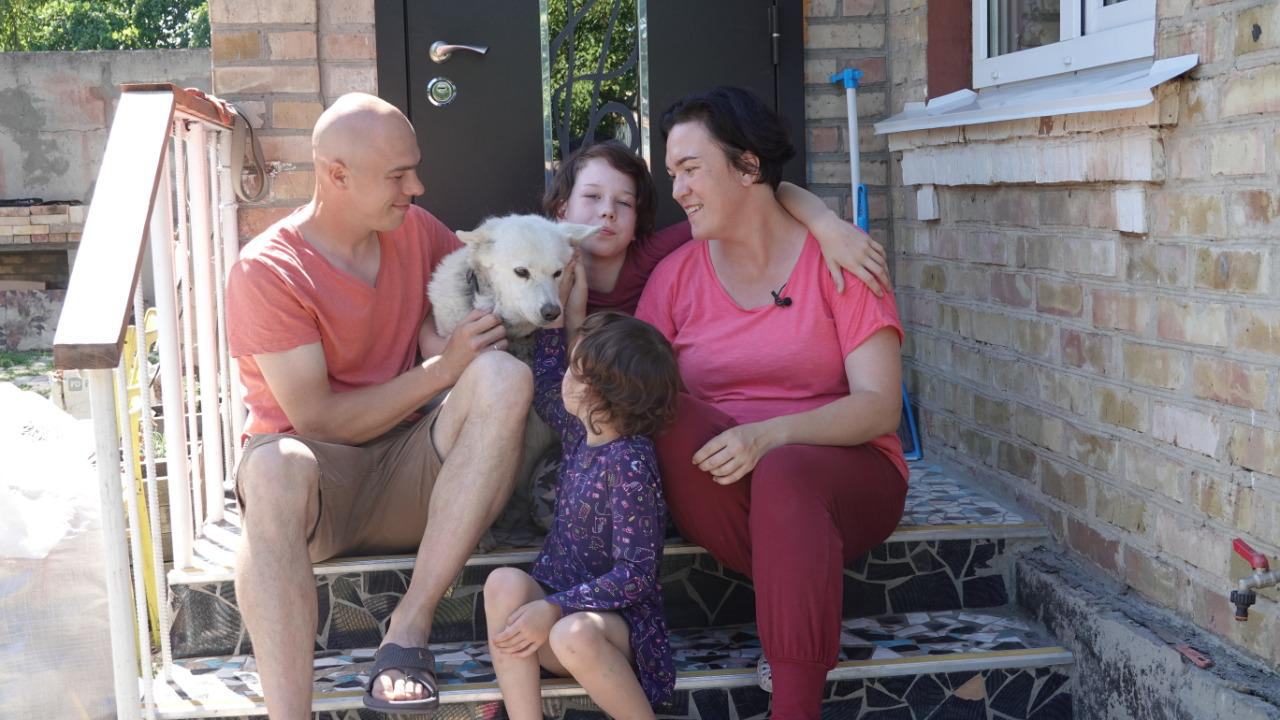There’s a traffic jam heading into the Ukrainian city of Hostomel today, made worse because the bridge over the Irpin river was destroyed as the Russians advanced back in the early days of war. Now this is just a normal commute from Kyiv toward Hostomel, Irpin and Bucha — the sites of some of the worst atrocities Russians troops committed in Ukraine.

In Hostomel, life has resumed among the rubble, blown-out windows and blackened buildings. The local street market is back in front of the Hostomel glass factory, which is now destroyed and shuttered. Sounds of banging echo across the street where the corner shop is being rebuilt with all new plywood and colorful lettering.
“People are living out of a suitcase here; lots lost their work,” said Mikhail Neymet, 48, the shop owner.

He looked on wearily as the work is carried out. It’s only the second day he’s opened the shop, which he said was totaled by the Russian army.
“I hope that things will be OK. Hope dies last,” he said.
With higher prices, it’s harder to buy and sell at the market. And all the quality fruit and vegetables from southern regions of Kherson, Zaporizhzhia and Mykolaiv, Ukraine’s traditional harvest areas, are out of reach now, lost under Russian occupation.
Neymet has family in the US and in Europe. He could always go there, he said, and leave the country.
“But for what? This is our homeland; we need to restore our homeland,” he said.

Katerina Titova, 35; Alex Titov, 36; and her family are down the road. They fled from Hostomel on March 4, the day after the Russians bombed their garden, destroying her brand-new jewelry workshop as well as a neighbor’s house. The main house had its windows blown out, leaving huge holes in the brick wall and shrapnel embedded inside, among family photographs.
The couple left their home on foot after that with their two children, 10-year-old Makar and 5-year-old Taisia, and eventually made it to the relative safety of Kyiv. When they returned at the end of May, they couldn’t believe their house was still standing and that the Russians hadn’t gotten inside.

“I went around petting it like a cat, calling it ‘my darling; we’ll repair you, my darling,'” said Titova now, laughing at her own fondness for this place she calls home.
There was never a question that they wouldn’t return.